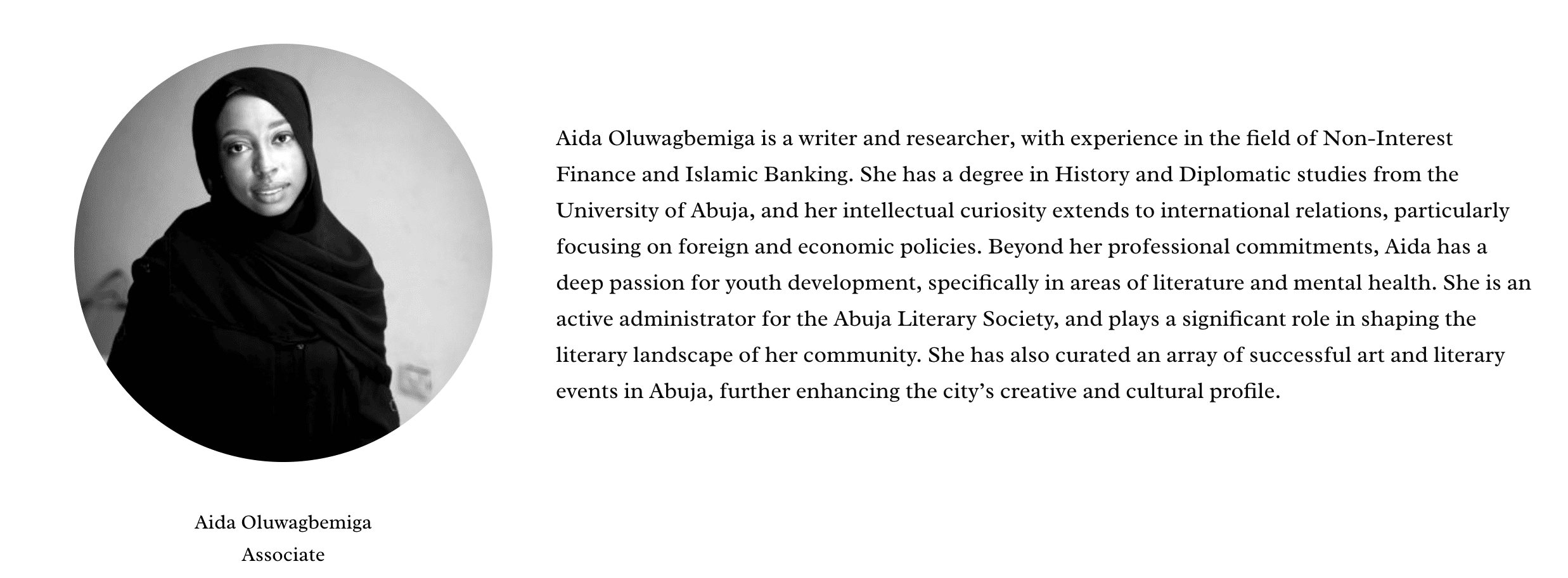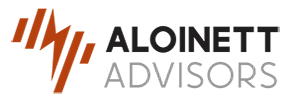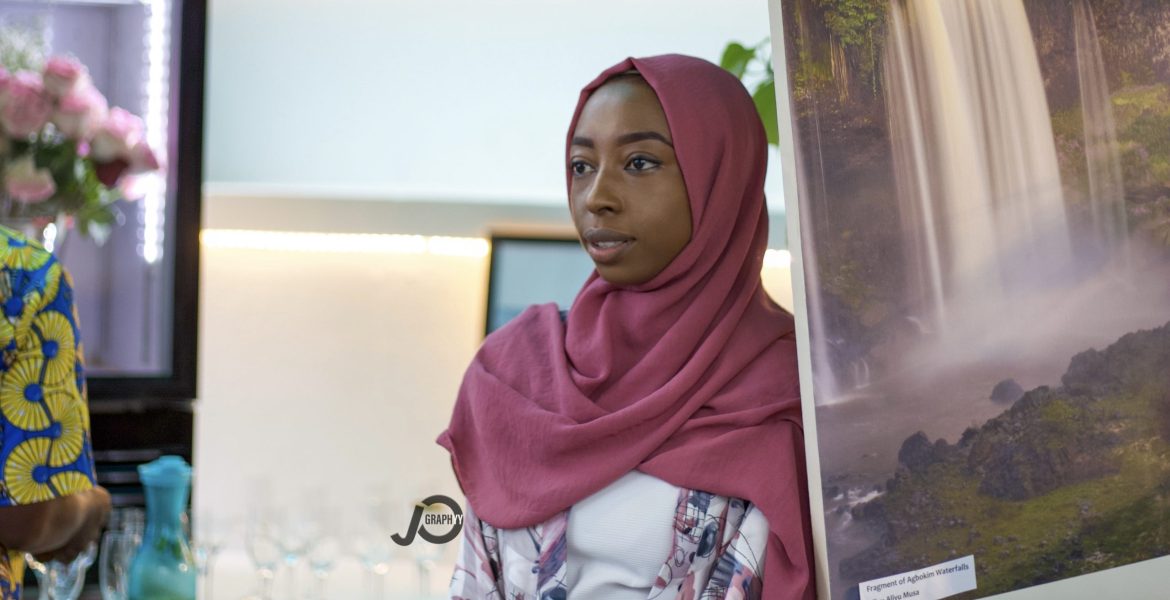
In this personal blog, Aida Oluwagbemiga reflects on her time with the Abuja Literary Society, building communities and expanding her contribution to the Nigerian creative space.
I discovered the Abuja Literary Society (ALS) in August 2018, through its annual Abuja Literary & Arts Festival (ALITFEST). This sparked a profound change in my life. A few months before attending my first literary festival, I was grappling with a sense of ennui that could rival Madame Bovary’s. My world was confined to a small intellectual bubble, centred around John Green, his works, inspirations, and early influences. I yearned for a Nerdfighteria or a Harry Potter Alliance of my own. The redeeming intellectual facet at the time were my friends. I’d schooled with Jedidah John, who not only listened and understood but also had knowledge of book societies. Based in Kaduna, she one day shared with me via Instagram a post about ALITFEST tickets in a bid to alleviate my growing feeling of not belonging.
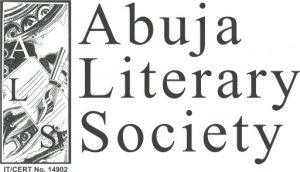
The festival held in August 2018 at the Abuja Exhibition Pavilion which featured four adjoining halls. The main hall was dedicated to panels and workshops, the second to a gallery with an art exhibition, the third to a fair dominated by book vendors and crafts merchants, and the last hall was a relaxed recreational area with drinks and ice in large drums. My portrait was drawn by an art organisation called I Can Draw Africa, an impressive experience. But nothing was more memorable than discovering bookstores like Rovingheights and Adams Pages, stocked with classics and contemporary literary works. This included the entire Harry Potter series and ‘The Fault in Our Stars’. I made a friend in the vendors section due to our mutual love for John Green and Dan Brown, and through this friendship, I read ‘Turtles All the Way Down’. Our friendship was founded on book exchanges.

Of all the panel discussions, the one on film was particularly informative. One speaker, Steve Gukas, made a remark that resonated with me: “A mind expanded can never return to its original size; it can only continue to expand,” encapsulating the transformative power of reading. The general ambiance, the questions asked, and the Poetry Grand Slam spoke of a society striving for self-improvement. People there, like myself, grieved for something, dreamt of a better world, and collectively hoped to make a difference, united by their belief in the power of simple conversations and the allure of words. It felt like home.
Coincidentally, this festival was to commemorate the 20th anniversary of the Abuja Literary Society (it was founded in 1998), offering me a glimpse into the literary world around me. I fell for ALS in the way Hazel did in ‘The Fault in Our Stars’: slowly, then all at once. Then I started to attend the weekly meetings in Abuja, four Fridays every month.
At my first open mic event, I thought I had stumbled into the wrong meeting. The discussion was on mental health, a key interest of mine. It felt like a support group for intellectuals, a place where one could present all aspects of oneself that were unacceptable to the larger world, and be heard. This became my favourite aspect of ALS. In the first 30 minutes, group rituals included introductions with basic yet profound questions, like “How are you doing today?” This created a space for brutal honesty. My most memorable moment was at another open mic event at Sandralia Hotel, where we were asked to state our greatest success that week. Mine was reading a Medium article by Chijioke Osuji. It felt okay to voice this.

I have always been passionate about giving back. Two years prior to ALITFEST, I began volunteering with the Global Hope Integrated Empowerment Foundation (GHIEF), undertaking fulfilling activities such as visits to camps and supplying schools outside the city. However, with ALS, it felt like my own community. I had hoped to become an active member since my first ALITFEST experience, and the opportunity arose in 2021. After a successful interview at Salamander Café, I began learning about community management under Onyinye Madu and Teniola Tayo, gaining knowledge in administrative roles and communications. This proved invaluable when I needed a career change.
Through ALS, I’ve overcome my fear of public speaking and learned about audience engagement, skills that have been instrumental in my role as a curator. I’ve formed connections with artists like Aybee during ALS open mic events, which inspired me to include musical performances in my exhibitions.
October 2022 was a milestone: I curated a runway fashion show for ALITFEST and took on multiple roles, including guest liaison and communications officer. I also co-hosted the ALS Book Jam with Su’eddie Agema.
View this post on Instagram
View this post on Instagram
View this post on Instagram
Working with ALS has taught me the value of humility and service. Networking has led to pure, unadulterated friendships with individuals like Bash Amuneni, Sanusi A. Sanusi, Gabriel Onuh, Augusta Imomon, Onyinye Madu, and Homer. I also met and drew close to Aisha Iyah Abubakar, the founder of of The Milk Shop, who now generously hosts ALS’ monthly book clubs and has also been a very supportive force in my growth as a curator.
The Milk Shop is where I had one of my proudest moments this year – a solo art exhibition I curated, featuring Jonathan Adamu‘s work. It was titled Midsummer with Aldebaran and his Pleiades, and featured a beautiful display of incomplete art pieces, with a few suspended from the ceiling. I met Jonathan through ALS and we’re now great friends. My yearly highlights also include the whimsical reading party I curate for the Mental Health for Youth Initiative (MHYI), facilitating collaborations and promoting mental health awareness. Working on this granted me the opportunity to host some ALS Book Jam sessions, where I organise and anchor quarterly reading circles.
My journey with ALS has been enriching, allowing me to teach, meet, and inspire countless individuals. I hope to continue this journey, contributing to and growing with the community.
Written by Aida Oluwagbemiga
